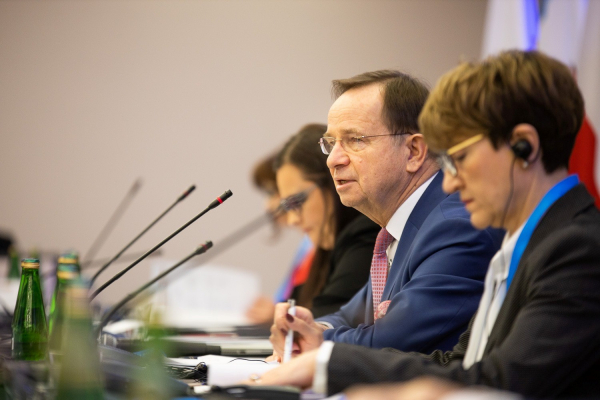Marshal Władysław Ortyl appeals to the CoR to act on the situation in Belarus

On 11 September, the President of the ECR Group in the European Committee of the Regions and President of the Podkarpackie region in Poland, Władysław Ortyl addressed a letter to the President of the CoR, Apostolos Tzitzikostas and the Chair of the CIVEX commission, Mark Speich, regarding events in Belarus. Mr Ortyl calls for action and solidarity for Belarus, particularly with respect to human rights and local democracy. The situation in Belarus came to a head when, earlier in 2020, the incumbent President, Alexander Lukashenko, won an election that international observers deemed fraudulent. Lukashenko has been the autocratic leader of Belarus since 1994.
In his letter, Mr Ortyl speaks positively of the CoR Bureau declaration on the situation in Belarus, but he also makes several proposals to better address the situation in a more targeted manner. Firstly, Mr Ortyl calls on the CoR to create a programme where local and regional authorities in both the EU and Belarus can exchange experiences. This platform should be modelled on the existing programme the CoR operates with Ukraine. Mr Ortyl points out that in the case of Ukraine, this exchange was viewed very positively on the Ukrainian side and programmes such as U-LEAD (in which the CoR has played an active role) are excellent opportunities to build a dialogue with local and regional actors. Doing the same for Belarus, Mr Ortyl argues, would be help achieve the goals set out in the CoR declaration.
Mr Ortyl also calls on the CoR to begin traineeship programmes for local government staff, as well as for graduates and students from Belarusian universities. This could be done by creating a database of Committee members willing to take on Belarusian trainees. Mr Ortyl expands on this point in his letter, by arguing that the European Commission should set up a special traineeship fund for this purpose. The letter goes on to argue for a spirit of overall enhanced cooperation between European institutions, for example with the European External Action Service and the EU Delegation in Minsk.
Lastly, Mr Ortyl argues that the CoR should improve funding for cross-border programmes. In specific terms, Mr Ortyl suggests pushing for the development of the existing cross-border cooperation programmes covering Latvia-Lithuania-Belarus and Poland-Belarus-Ukraine. He notes that the latter of the two programmes has been especially successful in supporting cross-border development over the last sixteen years, providing lasting economic growth on both sides of the EU's border.
Mr Ortyl hopes that his letter and the outlined proposals will "put the (CoR) Bureau's declaration into practice." The ECR Group in the CoR is monitoring the situation in Belarus as it develops and supports proposals that would advance the democratic process and liberty.

